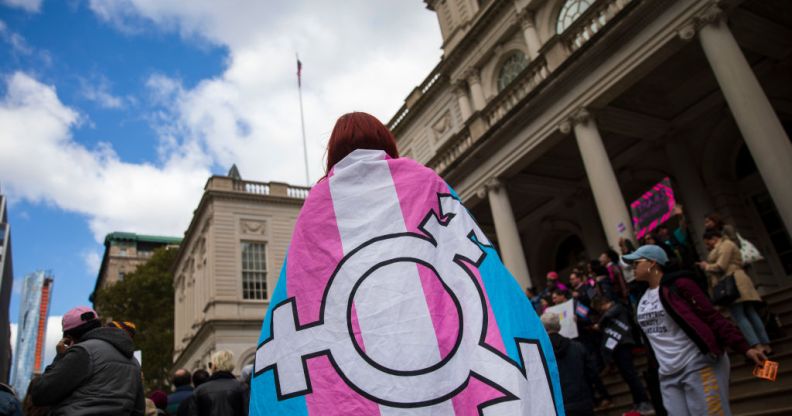Trans woman wants an apology from Netherlands government after she was forced into being sterilised

(Getty)
A trans woman is seeking an apology from the government in the Netherlands after she went through forced sterilisation under an archaic and since-scrapped law.
Up until 2014, trans people in the Netherlands were legally obliged to undergo forced sterilisation in order to be recognised in their gender.
Willemijn van Kempen was one of the trans people affected under the law. She has filed a lawsuit, alongside 15 other plaintiffs, which demands that the government issue an apology to the trans people who were sterilised under the law.
“People need to know that this happened and should not have happened,” van Kempen told Volkskrant.
Trans people deserve an apology and compensation for forced sterilisation in the Netherlands, activists argue.
She said that the lawsuit is not just about those who underwent sterilisation, but also about those who did not legally transition because of the dehumanising law.
Joining van Kempen in the lawsuit is women’s right organization Bureau Clara Wichmann and Transgender Network Netherlands.
People need to know that this happened and should not have happened.
They are also calling on the state to offer compensation to the trans people who were sterilised under the law. A spokesperson for Bureau Clara Wichmann noted that similarly affected trans people in Sweden have been given €20,000 in compensation.
The Netherlands finally changed its archaic law in 2014 meaning trans people must now get an “expert statement” from a doctor in order to legally transition.
Forced sterilisation of transgender people is still a legal requirement in Japan.
The nation was not alone in forcing trans people to undergo sterilisation in order to have their gender recognised. A similar law is still in place in Japan, and other countries such as Germany and Australia have been forced to scrap their laws.
Last month, international human rights lawyer Michael Kirby urged Japan to end its “regime” of forced sterilisation.
Kirby, who is co-chair of the International Bar Association Human Rights Institute and a former justice of the Australian High Court, said there is “no excuse” for Japan’s failure to reform its gender recognition laws.
“The purpose of law is to protect people and organise society according to principles of justice. There is nothing protective or just about Japan’s Gender Identity Disorder Special Cases Act.
“It needs to be revised urgently as there is no excuse for continuing a regime of forcing sterilisation on people.”

